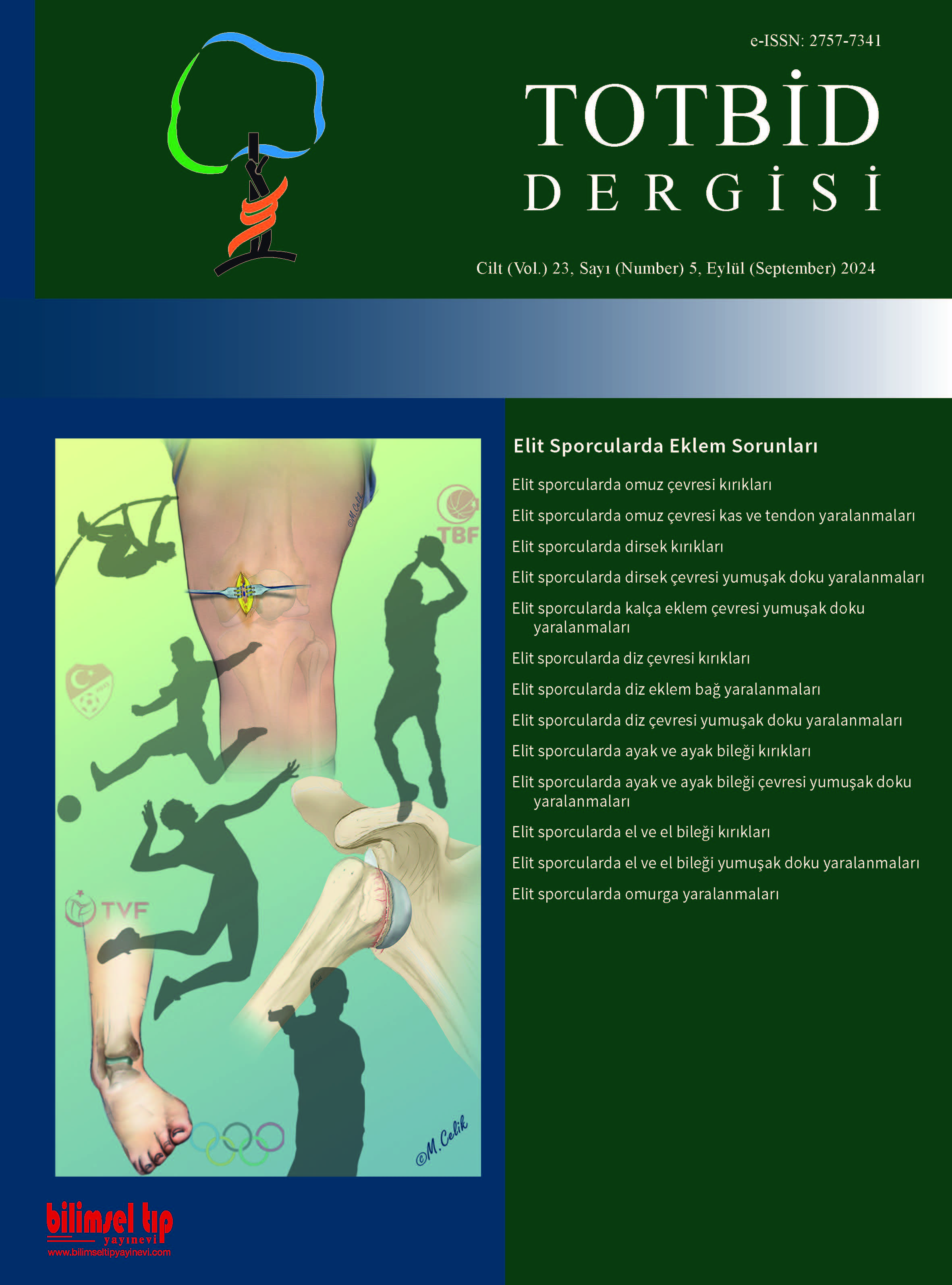
In athletes, injuries to the muscles and tendons around the shoulder can impact athletic performance. Distinguishing the adaptive changes in the thrower`s shoulder from pathologies is crucial for directing the proper treatment. Süperior labrum anterior-posterior (SLAP) lesion and partial rotator cuff tears seen in the thrower`s shoulder may be due to adaptive changes to increase throwing power. Surgical treatment of these cases can lead to a decrease in shoulder motion and loss of performance in the athlete. The type of sport, the athlete`s level, their expectations and whether the injury occurs during the season or off-season play a significant role in determining the treatment strategy. Glenohumeral internal rotation deficit is most commonly seen in throwers, and the development of internal rotation restriction along with an increase in external rotation capacity is considered an adaptive change. A decrease of more than 20 degrees in total range of motion compared to the opposite side is considered pathological. Among SLAP lesions, type II is most common in athletes, and when conservative treaetment fails traditional treatment is arthroscopic labrum repair but new evidences support biceps tenodesis. Physical therapy is primarily recommended for partial rotator cuff tears. In cases requiring surgery, debridement, in-situ repair, or classical double-row repair methods can be used depending on the characteristics of the tear. Extraartricular tendon injuries are rarer and difficult to diagnose. Surgical treatment is recommended for pectoralis major tendon tears. Latissimus dorsi and teres major injuries can be treated with non-surgical methods.